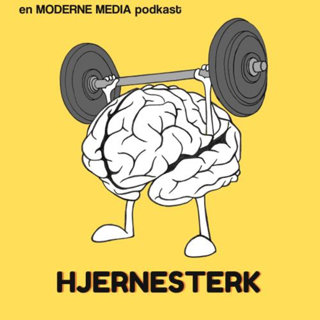
Avoid These Big Mistakes When Drinking Water
In this podcast, I'm going to debunk some popular myths about water and provide you with the truth behind each one. Myth #1: Once you feel thirsty, dehydration has already set in Truth: While feeling thirsty is a sign that your body needs more fluids, it does not necessarily mean you are dehydrated. Your body is designed to give you signals when you need more water, so just drink when you feel thirsty. Myth #2: Drink water until your urine is clear Truth: Your urine should be a pale straw color or light yellow. If it's too clear, it means you are overhydrated; if it is too dark, it could indicate a potential health issue with your liver or kidneys. Myth #3: Drink water to feel full and reduce food intake Truth: While replacing sugary drinks with water can help you lose weight, drinking more water does not directly lead to fat loss. Myth #4: Drinking more water will flush out toxins Truth: Most toxins are fat-soluble and are not flushed out by drinking water alone. The body has its own detoxification system, so just focus on staying hydrated instead of trying to "detox" with excessive water intake. Myth #5: Water will prevent dehydration Truth: While it is true that hydration is vital for overall health, simply drinking water will not prevent dehydration. Other factors, such as electrolytes play an important role in preventing dehydration. Myth #6: Drink more water Truth: Drinking massive amounts of water can lead to imbalances in the body. Certain situations will call for more water intake—just don't overdo it. If you're prone to kidney stones, you need at least 2.5 liters of fluid per day Myth #7: Drink water right before you eat Truth: Drinking water before meals is fine, but it may cause discomfort for individuals who experience heartburn or bloating. A few more key points to remember: • If you're prone to kidney stones, consider adding lemon to your water. • Add a little bit of baking soda to your water if you experience gout symptoms. • The keto flu or fatigue experienced by some individuals on a keto diet is often due to not consuming enough electrolytes with their water, specifically salt. • Proper hydration is vital for kidney health, but drinking more water won't cleanse or "flush out" the kidneys.
7 Mar 20247min

The 15 Causes of ITCHING You've Never Heard About
In this podcast, I’m going to share 15 underlying causes of itching. Pruritus is the medical term for itching. Itching usually involves a superficial nerve that is aggravated to some level. Here are 15 causes of itching: 1. Body lice 2. Scabies 3. Hookworms 4. Herpes 5. Insect bites 6. Yeast infection 7. Poison ivy 8. Tick bites 9. Diabetes 10. Polycythemia 11. Problems with the parathyroid glands 12. Uremia 13. Liver issues 14. Cholestasis 15. Dry skin Itching is often a symptom of diabetes because of circulation problems. Poor circulation causes the nerves to die, which can feel like itching or burning pain and even cause severe pain. Polycythemia is a condition where you have too many red blood cells. This can decrease circulation and the amount of oxygen in your skin, causing itching. The parathyroid gland consists of 4 glands around the thyroid that control calcium. If the thyroid works too hard, you could develop too much calcium in the blood. This can lead to calcification of your skin, which can affect your nerve endings. Liver issues like cirrhosis, hepatitis, or cholestasis can cause itching. You can develop cholestasis if the liver’s function is impaired and it can no longer make bile salts. Dry skin is a common cause of itching, often caused by a lack of vitamin A or vitamin D. There is a high correlation between people who have itching and people with liver or gallbladder issues. This is typically caused by irritation to the gallbladder and decreased omega-3 fatty acids. Dietary changes can help eliminate itching. TUDCA, a bile salt that helps thin the bile, has been found to significantly decrease itching in people with cirrhosis. DATA: https://www.sciencedirect.com/science... https://www.ncbi.nlm.nih.gov/pmc/arti... https://www.ncbi.nlm.nih.gov/pmc/arti...
6 Mar 20245min

Drink 1 Cup Per Day for Depression
Let’s discuss the many benefits of green tea and how it can help with depression. But what exactly is green tea? Green tea is a drink made from unfermented leaves, which makes it different from other types of tea. It contains many pharmacologically active compounds that have been found to have numerous health benefits. One of these benefits is its ability to reduce depression. Studies have shown that drinking just three cups of green tea per week can reduce depression by 21 percent. But how exactly does green tea help with depression? Green tea has been found to have an impact on certain areas of the brain, such as the prefrontal cortex and the nucleus accumbens, which are involved in addiction. It also affects the hippocampus, which plays a role in cognitive function, memory, and learning. Another compound found in green tea is L-theanine, an amino acid that helps with mood stabilization and has been shown to improve depression directly. But the benefits of green tea don’t stop there. Studies have also shown it to be anti-carcinogenic, antimicrobial, and neuroprotective. It has even been found to reverse age-related cognitive decline. But drinking green tea isn’t the only natural way to combat depression. Here are some other methods you can try: • Exercise: A study found that exercise may have effects similar to Zoloft in reducing symptoms of depression. High-intensity interval training has been proven to be particularly beneficial for those with depression and anxiety. • Vitamin D: Deficiency in this essential nutrient has been linked to a higher risk of depression, so get enough sunlight and take a vitamin D supplement. • Fasting: Fasting has been found to have survival properties that can help our bodies function better, including reducing symptoms of depression. DATA: https://pubmed.ncbi.nlm.nih.gov/35745040 https://pubmed.ncbi.nlm.nih.gov/23625... https://www.sciencedirect.com/science... https://pubmed.ncbi.nlm.nih.gov/18078... https://pubmed.ncbi.nlm.nih.gov/30496... https://pubmed.ncbi.nlm.nih.gov/27338...
5 Mar 20245min

The Early Signs of Colon Cancer You DON'T Want to Ignore
Today, I want to cover the early warning signs of colon cancer that you should pay attention to. These indicators do not necessarily mean you have colon cancer, but they are important clues that could help in the early detection of this disease. Risk factors associated with colon cancer: • Smoking • Drinking • Unhealthy diet • Obesity • H. pylori infection Red meat has also been associated with colon cancer. However, recent studies have found no direct correlation between red meat and cancer and that the quality of meat consumed, such as grass-fed versus grain-fed, can make a difference. Genetics play a role in colon cancer but only account for about five percent of cases. Lifestyle factors such as diet and exercise can have a much greater impact on gene expression through epigenetics. Six early indicators of colon cancer: • Blood in the stool • Anemia without a known cause • Thin stools • Worsening constipation • Abdominal pain • Sudden weight loss or loss of appetite If you experience any of these symptoms, it's important to consult with your doctor for further testing and evaluation. But what can you do to potentially avoid colon cancer? Here are a few tips: • Limit the use of antibiotics, but if you must take them, also take a good probiotic. • Try intermittent fasting or prolonged fasting to give your colon a break and allow it to heal. • Incorporate cruciferous vegetables such as kale, broccoli, and cabbage into your diet for their anti-inflammatory and probiotic properties. • Stay physically active to strengthen your mitochondria and decrease cancer risk. • Add spices such as garlic, thyme, and sage to your meals for their anti-cancer properties. • Avoid foods that cause inflammation in the gut, such as gluten, grains, seed oils, and junk food. DATA: https://jamanetwork.com/journals/jama... https://www.ncbi.nlm.nih.gov/pmc/arti...
4 Mar 20246min

The 6 Foods That Can Cause Cancer
Today, I want to cover the six main foods that can potentially cause cancer. However, many other factors can trigger cancer, including: • Exposure to environmental toxins such as pesticides, radon, and cleaning chemicals • Old age and age-related changes in the body's cells • Viruses, fungi, parasites, and bacteria • Pollution Six foods that may cause cancer: 1. Alcohol: Chronic alcohol exposure can damage your mitochondria, which can lead to cancer. 2. Trans fats: These are artificially produced fats commonly found in fried foods and processed snacks. They have been linked to an increased risk of cancer and other health issues. 3. Burnt or charred meat: Harmful chemicals such as heterocyclic amines (HCA) and polycyclic aromatic hydrocarbons (PAH) can be formed when meat is cooked at high temperatures. These have been linked to various types of cancer. Add garlic or rosemary to your meat while cooking to reduce your risk. 4. Advanced glycation end products (AGEs): These are compounds formed when protein and sugar are heated together. Foods high in AGEs include barbecued meats, fried foods, and ice cream. 5. Processed meats: These can contain nitrates, which have been associated with an increased risk of cancer. It's important to note that grass-fed and grass-finished meat differs from processed meat. Therefore, it's important to choose quality sources of meat. 6. Ultra-processed or junk foods: These foods are highly refined and are high in sugar, unhealthy fats, and chemicals. They can cause inflammation and deplete our vitamin and mineral reserves. It’s important to look out for Generally Recognized As Safe (GRAS) foods that are unhealthy, such as: • Maltodextrin • Modified starch • High fructose corn syrup • Corn oil • Soy oil • Canola oil • Corn syrup DATA: https://pubmed.ncbi.nlm.nih.gov/17023... https://bmccancer.biomedcentral.com/a... https://usrtk.org/ultra-processed-foo... https://www.thelancet.com/journals/la... https://www.thelancet.com/journals/ec... https://pubmed.ncbi.nlm.nih.gov/29444... https://pubmed.ncbi.nlm.nih.gov/36477...
3 Mar 20248min

How to Maintain Weight Loss After Ozempic
Understanding the benefits and drawbacks of Ozempic is crucial when considering how to manage your weight after stopping this medication. As a GLP-1 Agonist, Ozempic mimics a hormone in your small intestine that helps regulate insulin levels, control appetite, and slow down gastric emptying. While this can aid in weight loss, it can also lead to adverse side effects. These side effects may include: • Nutrient deficiency • Gastroparesis • Constipation • Gallbladder problems • Thyroid tumors and cancer To help maintain your weight after Ozempic, it’s crucial to make certain lifestyle changes, such as: 1. Follow a ketogenic diet to keep insulin levels low and promote fat-burning. 2. Do intermittent fasting to control appetite and improve hormone balance. 3. Incorporate weight training to build and preserve muscle mass. Additionally, ensuring adequate protein intake is crucial for maintaining muscle mass, especially for those who have already lost a significant amount of muscle while on Ozempic. This can be achieved through consuming bioavailable proteins such as red meat, eggs, and fish. Monitoring your hormone levels and ensuring proper cholesterol intake is also important, as cholesterol is a building block for many hormones, including testosterone and estrogen.
2 Mar 20245min

What I Would Do If I Had ALS (Amyotrophic Lateral Sclerosis): Lou Gehrig’s Disease – Dr. Berg
In this podcast, we're going to talk about ALS and how it can negatively affect the body. ALS, also known as Lou Gehrig's disease, is a progressive neurodegenerative disorder that affects nerve cells. This leads to muscle weakness, paralysis, and eventually death. According to "The ALS Puzzle Solved?!", there is evidence that ALS may be related to hormonal shifts and aging. As we age, there is a decrease in protective hormones such as progesterone and melatonin, which can lead to nerve damage and muscle weakness. It has also been suggested that mutations in certain individuals may play a role in the development of ALS. While the exact cause of ALS is still unknown, this information provides a potential pathway for treatment and management of the disease. It is recommended to supplement with melatonin and vitamin K2, as well as take natural B vitamins and hormones such as pregnenolone to support the body's production of progesterone. Additionally, infrared therapy has been shown to potentially increase melatonin levels, while resveratrol can help decrease toxicity in the body. DATA: https://pubmed.ncbi.nlm.nih.gov/30173656 https://pubmed.ncbi.nlm.nih.gov/34138412 https://www.scielo.br/j/ramb/a/hXLP66...
1 Mar 20247min

Get Your Omega-6 to Omega-3 Ratios Balanced
In this podcast, we’re going to talk about essential fatty acids, omega-6 and omega-3. The omega-6 to omega-3 ratio is way off in the average diet. The average American is at a 20:1 and sometimes a 70:1 or more omega-6 to omega-3 ratio! We need both omega-3 and omega-6 fatty acids, but we need significantly more omega-3 fatty acids to avoid inflammation. The source is important! You don’t want to get your omega-6 fatty acids from seed oils. Omega-6 consumption from seed oils directly correlates with chronic illnesses like heart disease. Very recently in human history, seed oils replaced saturated fat in the diet and are in every ultra-processed food. Foods high in omega-3 fatty acids include fatty fish, cod liver oil, cod liver, sardines, and shellfish. Grain-fed animals are much higher in omega-6 fatty acids. This is one of the reasons people are turning to grass-fed, grass-finished beef. Omega-3 and omega-6 fatty acids go through the same biochemical pathways and compete with each other in the body. If there’s any problem in these biochemical pathways, you can end up with dysfunctional fats that your body will be unable to benefit from. Co-factors for these biochemical pathways include magnesium, vitamins B2, B3, B6, vitamin C, and insulin. Many people are insulin resistant, which means they’re deficient in insulin. Seed oil consumption paired with insulin resistance causes a lot more compound damage. Intermittent fasting and a low-carb diet can correct insulin resistance so you’re better able to utilize fatty acids within the body and don’t end up with dysfunctional fats. Omega-3 fatty acids fall into two categories: DHA and EPA. EPA helps reduce inflammation, and DHA helps support cognitive function. ALA is a precursor to EPA. There’s a simple blood test that can measure your omega-3 to omega-6 ratio.
29 Feb 20248min





















